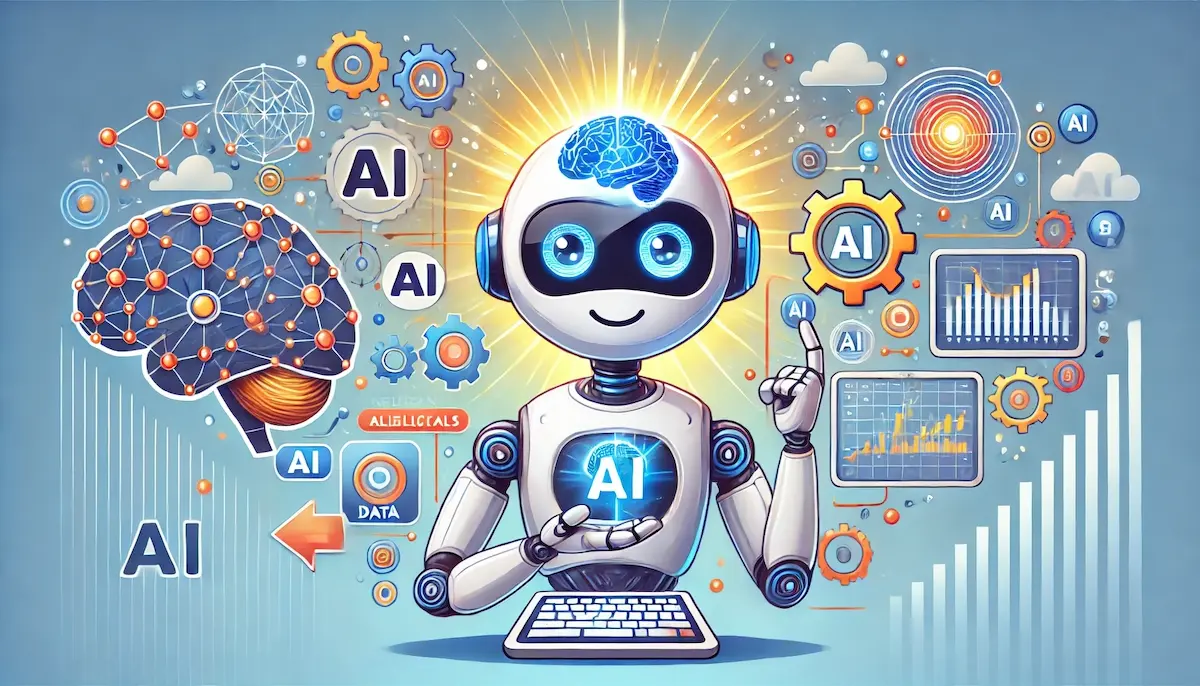Artificial Intelligence (AI) is a rapidly evolving field that has the potential to transform various aspects of our lives. From enhancing our daily routines to revolutionizing entire industries, AI is becoming an integral part of the modern world. But what exactly is AI, and how does it work? Let’s explore the basics of AI, its key features, and its diverse applications.
What is Artificial Intelligence?
Artificial Intelligence refers to the simulation of human intelligence in machines that are programmed to think, learn, and problem-solve like humans. These intelligent systems can perform tasks that typically require human intelligence, such as recognizing speech, making decisions, and understanding natural language. AI can be classified into two main types: narrow AI and general AI.
Narrow AI
Narrow AI, also known as weak AI, is designed to perform a specific task or a narrow range of tasks. Examples include virtual assistants like Siri and Alexa, recommendation algorithms on streaming services, and autonomous vehicles. These systems are highly specialized and cannot perform tasks outside their designated functions.
General AI
General AI, also known as strong AI or artificial general intelligence (AGI), refers to a theoretical system that possesses the ability to understand, learn, and apply knowledge across a wide range of tasks at a level comparable to human intelligence. AGI remains a concept and has not yet been realized in practice.
Key Features of Artificial Intelligence
Machine Learning
Machine Learning (ML) is a subset of AI that focuses on developing algorithms that enable machines to learn from and make decisions based on data. ML algorithms identify patterns in data and improve their performance over time without being explicitly programmed.
Natural Language Processing
Natural Language Processing (NLP) enables machines to understand and interpret human language. This includes tasks like language translation, sentiment analysis, and speech recognition. NLP allows for more natural and intuitive interactions between humans and machines.
Computer Vision
Computer Vision is a field of AI that enables machines to interpret and understand visual information from the world. This includes tasks like image recognition, object detection, and facial recognition. Computer Vision is widely used in applications such as surveillance, healthcare, and autonomous vehicles.
Robotics
Robotics involves the design and development of robots that can perform tasks autonomously or semi-autonomously. AI plays a crucial role in enabling robots to navigate, make decisions, and interact with their environment effectively.
How Does AI Work?
AI systems work by processing large amounts of data, identifying patterns, and making decisions based on these patterns. The process generally involves the following steps:
- Data Collection: Gathering relevant data from various sources.
- Data Preprocessing: Cleaning and organizing the data to make it suitable for analysis.
- Model Training: Using the data to train machine learning models. These models learn to identify patterns and make predictions or decisions.
- Model Evaluation: Assessing the performance of the model using test data to ensure accuracy and reliability.
- Deployment: Implementing the trained model into a real-world application where it can make decisions and perform tasks.
Applications of Artificial Intelligence
Healthcare
AI is revolutionizing healthcare by enabling early disease detection, personalized treatment plans, and efficient patient care. AI-powered diagnostic tools can analyze medical images and predict patient outcomes, improving the accuracy and speed of diagnoses.
Finance
In the finance industry, AI is used for fraud detection, risk assessment, and algorithmic trading. AI systems can analyze vast amounts of financial data to identify fraudulent activities and make investment decisions in real-time.
Transportation
AI is at the forefront of developing autonomous vehicles, which have the potential to reduce accidents and improve traffic efficiency. AI algorithms help these vehicles navigate, recognize obstacles, and make driving decisions.
Retail
In retail, AI enhances customer experiences through personalized recommendations, inventory management, and chatbots. AI-powered systems can analyze customer preferences and behavior to provide tailored shopping experiences.
Entertainment
AI is transforming the entertainment industry by powering recommendation engines, creating realistic animations, and even composing music. Streaming services use AI to suggest content based on user preferences, enhancing the overall viewing experience.
Conclusion
Artificial Intelligence is a transformative technology with the potential to revolutionize various industries and improve our daily lives. As AI continues to evolve, its applications will expand, offering new opportunities and challenges. Blockfine thanks you for reading and hopes you found this article helpful.
